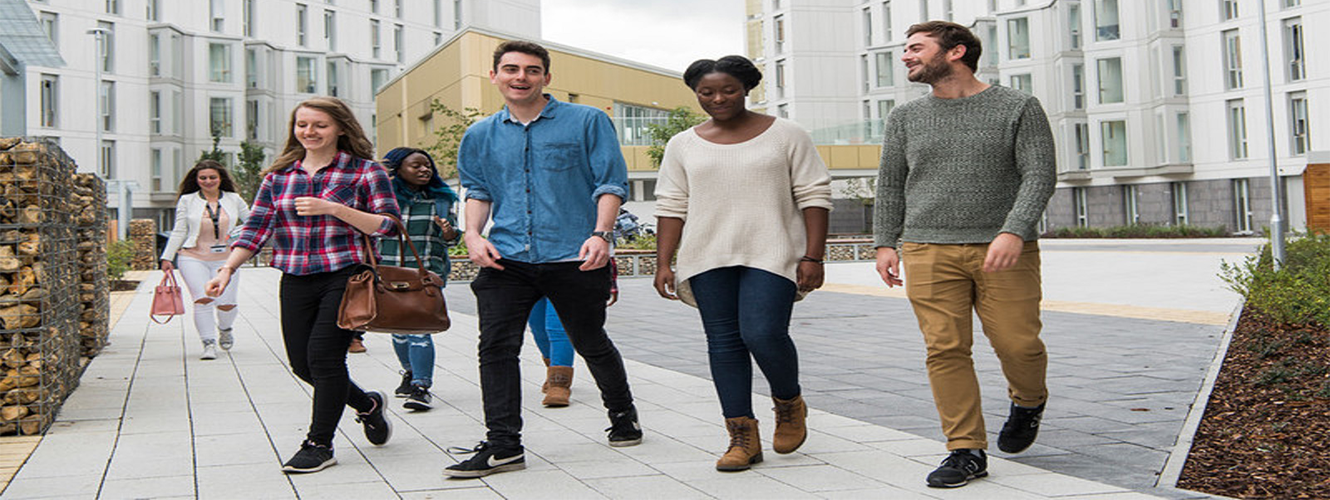UK116 BA Geography with a Placement Year University of East Anglia
-
THÔNG TIN CHUNG
How do we respond effectively to climate change? How should we manage our dwindling resources? How might we deal with population growth in cities and the challenges of more sustainable lifestyles?
Learn to tackle today’s biggest global challenges, including climate change, resource management, urban change, health, migration and poverty.
This degree is for you if have ambitions to address the adverse effects of human challenges such as inequality, and environmental challenges such as climate change, by learning more about the interaction of society and environment.
It’s also ideal if you’re excited about taking part in field work, seminars and team projects with other students.
ABOUT
Our BA Geography with a Placement Year focuses on the human impact of a changing world. As the world develops – whether through changing technology, politics, culture or climate – our understanding of it must change too, as well as our ways of living within it. You will explore some of humanity’s most pressing problems, such as energy, food and water provision, the maintenance of biodiversity and the search for environmental sustainability.
You will enhance your studies and employability by spending your third year on an industrial work placement, giving you hands-on experience whilst developing your skills and knowledge.
Throughout this course, you will gain the skills and knowledge to understand and investigate these challenges, with an emphasis on the geographical dimensions of societal change through the study of communities, cultures and their environment.
The degree spans human and physical geography, but with an emphasis very much on the human side. You’ll develop a broad understanding of geographical concepts and issues, as well as how to formulate research questions, collect and interpret data, present results, and develop practical transferable skills. You’ll also take part in field work, and have the chance to work on group projects.
During your first year, you will gain a solid understanding of the challenges facing the natural environment and human society. As the course progresses, you will have the opportunity to develop valuable practical experience through fieldwork, and to acquire specialist theoretical knowledge in such areas as biodiversity conservation and human society, climate change or environmental politics.
You’ll have the chance to study with world-leading academics in cutting-edge facilities, and to take your pick from a wide variety of modules thanks to the diverse expertise in our departments.
-
CƠ HỘI NGHỀ NGHIỆP
ACCREDITATION
This course is accredited by the Royal Geographical Society (with IBG). Accredited degree programmes contain a solid academic foundation in geographical knowledge and skills, and prepare graduates to address the needs of the world beyond higher education. The accreditation criteria require evidence that graduates from accredited programmes meet defined sets of learning outcomes, including subject knowledge, technical ability and transferable skills.
The current accreditation is for a six-year period, from the 2016 student cohort intake to the 2022 student cohort intake. We expect to apply for renewal of accreditation at the end of this period.
PLACEMENT YEAR AND STUDY ABROAD
Your Placement Year will ensure you graduate with relevant work experience, putting you one step ahead of your peers.
Not only will you see first-hand how your chosen field operates, you’ll boost your chances of progressing within that sector through valuable contacts and insight.
Your studies will benefit too as theory is transformed into reality – under the real pressures of time and money.
You will be expected to seek your own work placement. In the first two weeks of your second year, you will write a CV and apply to a range of organisations, which can include companies, government organisations or charities. Not only will this ensure that you work within your preferred field, it will also provide you with the essential job-hunting skills you will require after graduation. We will, of course, offer our guidance and support while you are identifying and negotiating placement opportunities.
During this year, you’ll be supported by an industrial supervisor and a mentor from the university. You and your industrial supervisor will feed back during the placement to ensure that it is progressing well, and your UEA mentor will visit you during the year.
Please note that we cannot guarantee any student a work placement as this decision rests with potential employers.
AFTER THE COURSE
Geography graduates go on to a very wide range of careers and have a high rate of employment. You could work for national and international agencies, in the private or public sector, in the areas of environmental and resource management, climate change, economic and social development, planning, or policy making.
Right now there’s demand for graduates to work in climate change, energy systems, and land or water resource management. Or you might choose to pursue a higher degree, such as an MA/MSc or PhD.
During your studies you’ll meet potential employers during internships and our annual Careers Fair, which attracts a wide range of employers interested in graduates with geographical skills.
CAREER DESTINATIONS
Examples of careers that you could enter include:
-
Sustainability officer
-
Environmental consultant
-
Waste and recycling manager
-
GIS technician
-
Energy Analyst
-
Town Planner
-
- ĐIỀU KIỆN ĐẦU VÀO
- ĐIỀU KIỆN NGÔN NGỮ
- HỌC BỔNG
- ĐỊA ĐIỂM
Tóm tắt
-
Phí ghi danh
0
-
Độ dài khoá học
4 năm
-
Kỳ nhập học
Tháng 9
Phí Cơ Bản
-
Loại Tiền
-
Học Phí
Trên năm -
Phí Sinh Hoạt
Trên năm -
Tổng







